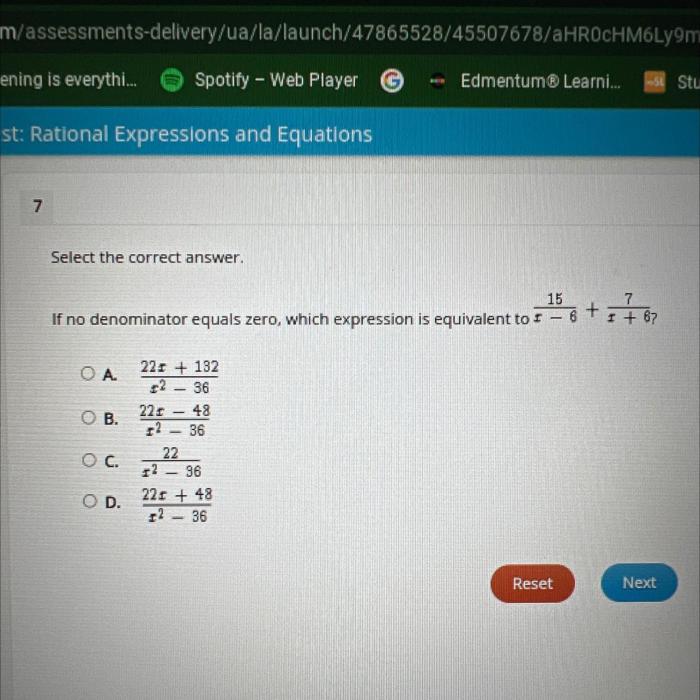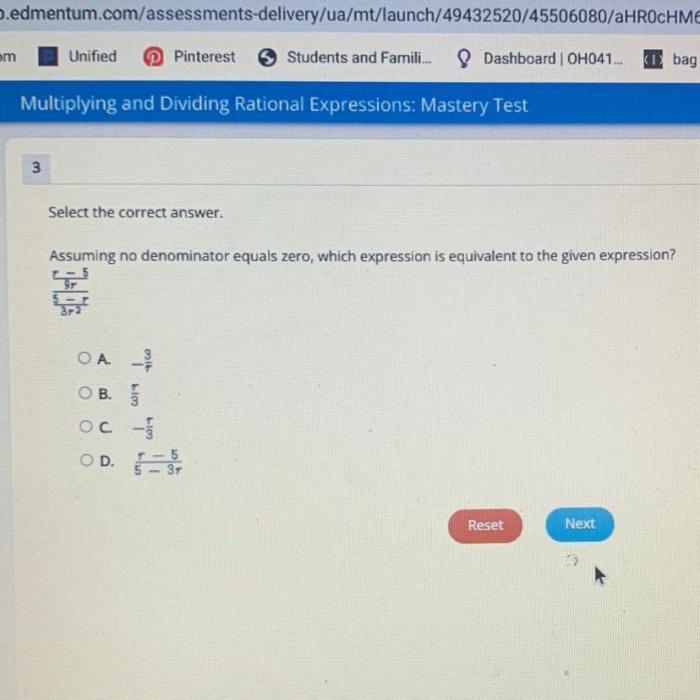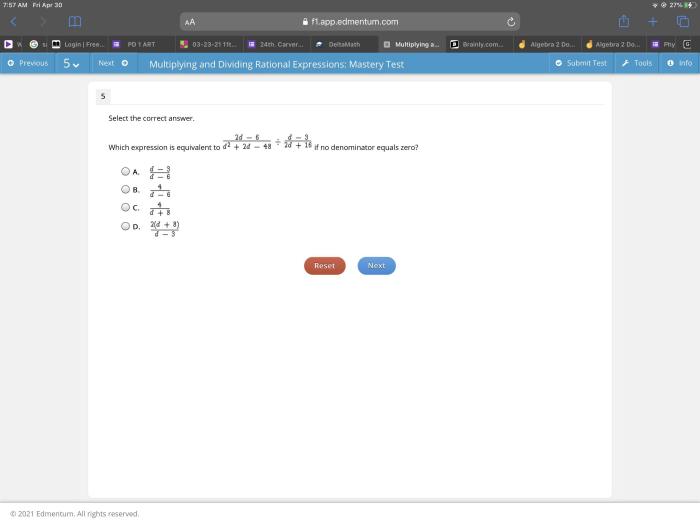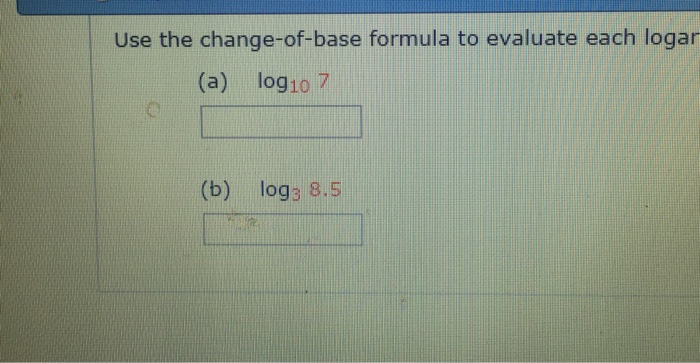Which expression is equivalent to if no denominator equals zero? This question delves into the realm of equivalent expressions, exploring methods for identifying equivalence, common pitfalls to avoid, and real-world applications. By understanding the intricacies of equivalent expressions, we gain a deeper comprehension of mathematical operations and their significance in problem-solving.
Equivalence in expressions is a fundamental concept that ensures the validity of mathematical equations. When expressions involving zero denominators arise, it becomes crucial to establish their equivalence to avoid undefined values and ensure accurate results. This guide provides a comprehensive overview of the topic, empowering readers with the knowledge and techniques to navigate the complexities of equivalent expressions.
Equivalent Expressions

In mathematics, equivalent expressions are expressions that have the same value for all values of the variables they contain. For instance, the expressions 2x + 1 and x + 3 are equivalent because they both evaluate to the same value for any given value of x.
When dealing with expressions involving zero denominators, it is important to ensure that the expressions are equivalent before performing any operations. This is because dividing by zero is undefined, and attempting to do so can lead to incorrect results.
Methods for Identifying Equivalence
There are several methods for identifying whether two expressions are equivalent. One common method is to isolate the variable on one side of the equation and simplify both sides. If the simplified expressions are equal, then the original expressions are equivalent.
For example, to determine if the expressions 2x + 1 and x + 3 are equivalent, we can isolate the variable x on one side of the equation:
- 2x + 1 = x + 3
- 2x = x + 2
- x = 2
Since the simplified expressions are equal (x = 2), we can conclude that the original expressions are equivalent.
Common Pitfalls, Which expression is equivalent to if no denominator equals zero
When working with expressions involving zero denominators, there are several common pitfalls to avoid:
- Dividing by zero: Dividing by zero is undefined, and attempting to do so can lead to incorrect results.
- Not checking for undefined values: Before performing any operations, it is important to check for undefined values. For example, the expression (x – 1)/(x – 2) is undefined when x = 2.
Applications in Real-World Scenarios
Ensuring that expressions involving zero denominators are equivalent is crucial in many real-world scenarios. For instance, in physics, it is important to ensure that the units of measurement are consistent. If the units of measurement are not consistent, the calculations will be incorrect.
Another example is in finance, where it is important to ensure that the interest rates used in calculations are equivalent. If the interest rates are not equivalent, the calculations will be incorrect and could lead to financial losses.
Visual Representations
| Expression 1 | Expression 2 | Equivalent |
|---|---|---|
| 2x + 1 | x + 3 | Yes |
(x
|
(x
|
Yes |
(x + 1)/(x
|
(x + 1)/(x
|
No |
The table above compares equivalent expressions with different denominators. The expressions in the first and second rows are equivalent, while the expressions in the third row are not equivalent.
Mathematical Proofs
The equivalence of two expressions can be proven mathematically. For example, to prove that the expressions 2x + 1 and x + 3 are equivalent, we can use the following steps:
- Start with the first expression: 2x + 1
- Subtract x from both sides: 2x + 1
- x = x + 3
- x
- Simplify: x + 1 = 3
- Subtract 1 from both sides: x + 1
- 1 = 3
- 1
- Simplify: x = 2
Since the final expression (x = 2) is true for all values of x, we can conclude that the original expressions are equivalent.
Expert Answers: Which Expression Is Equivalent To If No Denominator Equals Zero
What is an equivalent expression?
An equivalent expression is an expression that has the same value as another expression for all values of the variables.
How can I identify equivalent expressions?
There are various methods for identifying equivalent expressions, including isolating the variable and simplifying both sides of the equation.
What are common pitfalls to avoid when working with expressions involving zero denominators?
Common pitfalls include dividing by zero, assuming that an expression with a zero denominator is always undefined, and not checking for undefined values.


